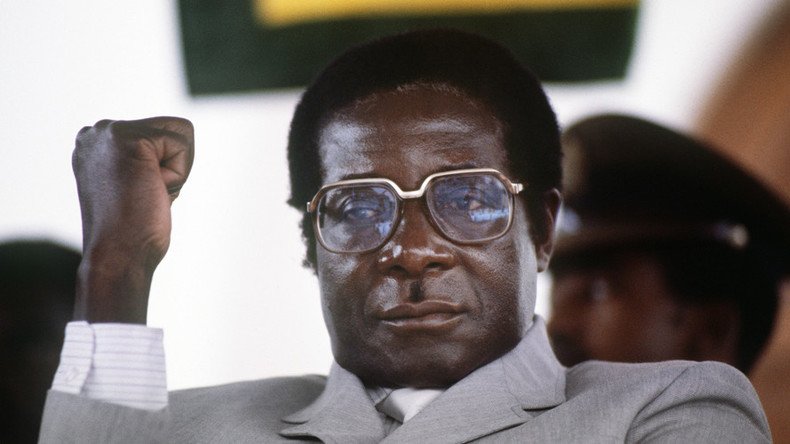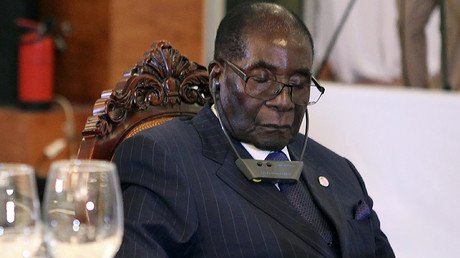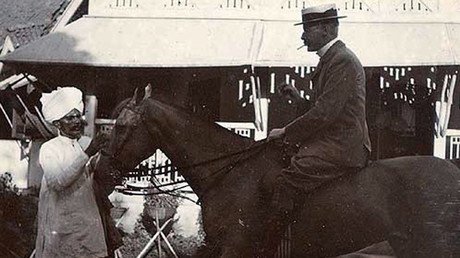Britain ‘turned blind eye to massacres in Zimbabwe to protect its interests,’ study claims

British officials remained “willfully blind” to the massacre of thousands of dissidents in Robert Mugabe’s Zimbabwe in order to protect the UK’s political and economic interests in the violence-wracked country, new research claims.
According to thousands of documents obtained under Freedom of Information laws by Dr. Hazel Cameron, a lecturer in international relations at the University of St. Andrews in Scotland, British officials in London and Zimbabwe were “intimately aware” of the atrocities in the 1980s, but minimized their scale.
“The British government could have influenced authorities in Zimbabwe, but put political and economic interests first … There were steps they could have taken but they chose not to,” Cameron told the Guardian.
Mugabe took power in elections held in 1980 following a brutal guerrilla struggle against white minority rule in what was known as Rhodesia. His Zanu-PF party won more than 60 percent of the vote.
In 1983, the leader launched a massive clampdown in Matabeleland, home of the country’s Ndebele ethnic minority and a stronghold of his political rival, Joshua Nkomo.
Over a nine-month period, the Fifth Brigade of the new Zimbabwean national army tortured and raped tens of thousands of unarmed civilians.
Historians believe that between 10,000 and 20,000 people perished in the atrocities, and many more suffered severe physical or psychological harm.
The newly revealed documents include communiqués exchanged between Robin Byatt, the British high commissioner in Harare, with officials in London. In one cable sent on June 24, 1983, Byatt explained how “Zimbabwe is important to us primarily because of major British and western economic and strategic interests in southern Africa, and Zimbabwe’s pivotal position there.
“Other important interests are investment and trade… prestige, and the need to avoid a mass white exodus. Zimbabwe… [also] is a bulwark against Soviet inroads.”
When Britain’s then foreign secretary, Geoffrey Howe, asked for the diplomat’s reaction to a Newsweek article that graphically described the violence being perpetrated by the Fifth Brigade, Byatt said the journalist had a “reputation for sensational reporting.”
“The behavior of the Fifth Brigade has certainly been brutal but it is [the] impression [of senior British military officials] that they are not out of control,” Byatt wrote.
With concern growing about violence in Harare, the high commissioner told London “he was sure that our best tactic is to continue to try to proffer sympathetic and constructive, rather than simply critical, advice if we wish to influence Zimbabwean decisions.”
Jill Byatt, the wife of the former high commissioner, told the Guardian that the criticism of her husband, who is ill, is misplaced, insisting that the decision to engage with Mugabe had saved lives.
“It was very important to keep good relations… Aggressive criticism would have got us nowhere. It would just not have worked.
“Mugabe had just begun to trust the British again… and nothing would have been gained by losing that trust. The slaughter would just have worsened. It is unthinkable that we could have helped in any way in the activities of the Fifth Brigade,” she said.














